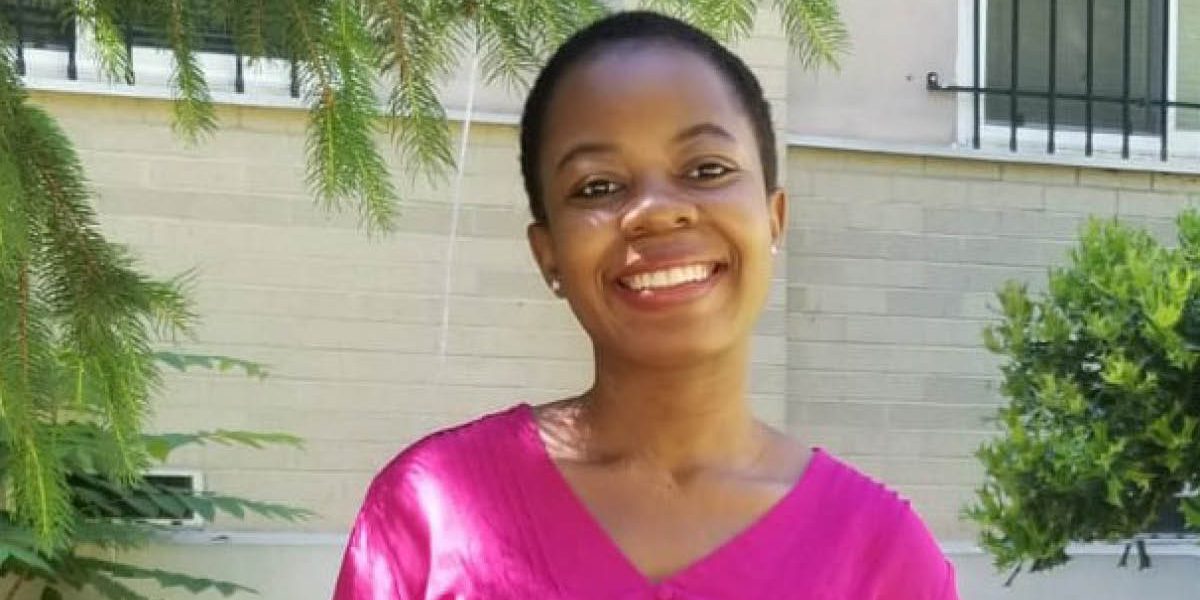
Patience Mhlanga is a former refugee from Zimbabwe, and currently an MPH Candidate at George Washington University in Washington, DC. She is also a graduate of Fairfield University and studied Theology at Duke University. Patience served in the AmeriCorps teaching math and served in the Peace Corps in Zambia, and most recently served as JRS/USA’s Advocacy and Outreach Intern. She is a Catholic woman committed to using her education to give back.
Describe your life and what was happening when you first became involved with JRS.
My first encounter with JRS was in Zimbabwe, where my family received financial support and shelter after fleeing political persecution. My second encounter with JRS was in a refugee camp in Zambia, where my family received help. Though many refugees couldn’t get employment, my mother was employed by JRS as a librarian. This job helped us with financial stability, a big gift that many refugees didn’t have.
Where are you in your life today?
Since arriving in the USA, I have completed a master’s degree and served in the Peace Corps and Americorps. I am now pursuing my second master’s in Public Health at George Washington University. I am hoping to work in the field of international development. My experience as a refugee inspired my career choice.
What difference did JRS make in your life?
JRS offered my family more than financial support. While in the refugee camp, JRS had a community library for refugees, which my siblings and I accessed to improve our reading and English. JRS also provided my family with safety and shelter when my family was facing political persecution in Zimbabwe. Without them, I don’t know where my family would be today. In short, JRS wanted us alive and breathing. I am breathing today, many thanks to JRS. I can never forget JRS.
JRS talks about walking with the people we serve and accompanying them on their journeys. What does accompaniment mean to you?
Accompaniment means to give someone life. JRS doesn’t just dump aid and abandon you. JRS cares to see you alive and your life improving. While in the refugee camp, JRS paid special attention to everyone. In particular, what shocked me was their attention towards neglected refugees who were disabled. In the refugee camp, there was a stigma towards disabled peoples, but JRS helped everyone regardless of who they were. My family, while in the camp, also received several visits from the Jesuits who were concerned about our well being. The Jesuits always showed up to our house whenever we didn’t expect them because they cared about us. The magnitude of support, love, and care that JRS provided my family is beyond a simple thank you. Let me just say this: JRS is my mother! A very loving mother.
This interview is part of a series recognizing our 40th Anniversary. You can find the whole series of interviews throughout the year on our international website.


